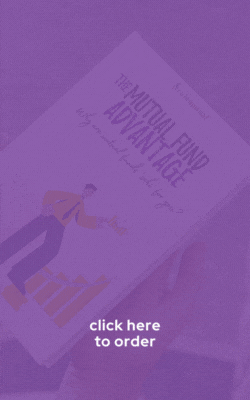We’ve all been guilty of pushing for another day financial decisions we need to take. It’s not that we are actually lazy slobs who’d rather get a beer than choose financial products on a Sunday afternoon; that’s there, of course, but our unwillingness to move on many things financial is also related to the complexity of the task. Research shows that when the task is complex or when there are too many choices, we freeze and mentally push the decision away to another day. Why do I say complex? Consider this: an average mass affluent household needs to own at least 10 financial products like deposits, different kinds of insurance cover, different loans, different tenure investment products, and retirement products, to name a few. Each of these is offered by several ‘universal’ brands. Each brand has many companies. Each company offers several products, and each product has many options. If each person was to read through the brochures of each product in the set, it may take many years to work. By then, of course, new categories, brands, companies, products and options would have arrived.
The problem is more complicated than just choosing products. The products, once bought, need a regular update. This could be due to a change in one’s personal situation—your kid could get financially independent and then you don’t need so much life cover or medical cover as before. Or, it could be a new product innovation in the market—a regular income term plan product, for example. Or, an investment product that misfires—a fund house loses steam and you need to switch your systematic investment plan (SIP).
Each time I run my Money-Box workshop on hands-free money management, the enormity of the task that confronts regular people in grappling with finance comes home to me one more time.
I wrote about a policy solution to this earlier (http://bit.ly/QYhPzh) where I argued for a fully-advised seller-beware market. But while that takes time to happen, what can we do to solve the choice overload that causes a decision freeze? If you can get a good for-fee financial planner whom you can outsource this recurring chore to, you must do so. But if you can’t find one or want to do it yourself, here are three things to remember. First, keep it simple. You’ve heard it before but what does it actually mean? Identify the financial products you need and then go for product categories that need the least monitoring. Have a good cash-flow system in place so that your spending and investment money are clearly separated. Products such as insurance for house, car, health and life will take a lot of homework before you buy. Remember to think long term when you buy. For instance, if your child is already in her late-teens, it may be a good idea to buy a separate health cover for her rather than bundle with your own. Don’t forget to look at the long-term premium slabs of the policy you buy for your health cover. Most companies will give a calculator that allows you to see the premium applicable to you as you age. For the investment decision, you may want to build a portfolio with exchange traded funds (these have much lower costs than managed funds) rather than with managed funds to reduce the time spent on managing your portfolio. Of course, you stand to do better or worse than managed funds.
Two, mentally keep aside a large chunk of time when you buy a new product. Financial products are sticky and there are big costs involved in terms of time and, sometimes money, if you want to switch. Think of the hoops that banks get you to jump through before you can switch a home loan. And then keep aside time every six months to take a look at the choices you’ve made.
Three, know that at least once in five years you may have to switch out of what you own and into a different product. Change in your own situation, poor product performance, product innovation, new technologies and better service are just some reasons why you may need to switch. If switching a home loan is tough because of the stickiness of the product, switching out of an erstwhile well-performing mutual fund scheme could cause problems in terms of deploying that money. You will need to either make a large lump sum switch or stagger it over time. Which is why for D-I-Y money managers who don’t have the time, staying with a portfolio of exchange-traded funds (ETFs) may be a better strategy.
Always remember, each product you buy must justify its place in your money box. Make the product you buy jump through the hoops before you allow it in. It will be a long-term relationship; better to get it right.





